Katy - A North Dakota Winter
"If I never see another flake of snow again in my life, I will consider myself blessed," she said. A 1920s story from the Katy Memoir - SEVEN MINUTES
A story from the Katy Memoir for my newer readers. The direct quotes in this story are from a taped interview of my mother Katy, when she was 75 years old. The tape and transcript of her voice is a priceless treasure to her family.
“Oh! The snow! The snow was like, well, at least five feet deep and sometimes more. All the fields and roads were covered higher than the fence posts, and there were no snow plows in those days. I don’t know how they ever managed. Sometimes snow storms overnight would close off our doors and we had to dig our way out, like tunnels, just to get to the barns to feed the animals. My older brothers were the shovelers, but we three young ones still had to do the milking. We hated it in the winter because we had to get up so early to milk them before we could go to school. And in the wintertime it was always so freezing and dark in the barn.”
North Dakota winters begin in November and continue until late March – six months of it. North Dakota has more snow than any other state, excepting Alaska, and usually experiences three to four severe winter storms each year, with strong winds and extremely low temperatures – the lowest recorded being −60 °F! As you can imagine, this made daily life a lot more difficult.
“There was no school bus, but when all the snow was on the ground, a canvas-covered wagon on runners pulled by two horses took us the five miles to school. All the families took turns providing the “school bus”. It would be so cold and we would be all bundled up in blankets. I remember that mama would heat rocks at night by the old stove and then wrap them in a bunch of rags. We put these hot rocks in the sleigh and put our feet on top of them. It was so cold … but you know, we still put in the effort. We wanted to go to school no matter how cold it was, and no matter how hard it was to get there.”
“There were little hills in the snow in the winter time, and we would tie barrel staves onto our feet and those would be our skis. A lot of times, toward spring, when the snow was melting, water would sit in the ditches along the roadside. It would freeze and thaw and freeze and thaw and a lot of us kids would ice skate along these ditches all the way to school. Yah, even the Schloss kids had skates. Somebody gave them to us, I guess. We got a lot of exercise, I’ll tell you that. Another thing I remember about the snow – we made snow cream instead of ice cream. There would be a fresh fall of snow and we would take off some of the top layer to get down into the beautiful clean snow.We poured milk and sugar and vanilla on it. Good stuff!”
“Our cellar was loaded with lots of coal for the winter but we used cow chips to get the fires started. All summer long we would go out and pick up all those dried cow chips. I know it sound awful, but we didn’t think anything of it. After all, that cow poop was just dried grass and hay and straw, and we needed it to kindle the fires. Everybody did this on their farms. Nothing went to waste in those days. So, when you talk about recycling, this was recycling too – you just find a use for everything. I can just see those big old ‘cow pies’ right now.”
“On the farm, we didn’t have indoor plumbing. We carried water from the well in the yard and our toilet was an outhouse. Winter time made the carrying of water and the getting to the outhouse very hard. Tell you the truth, for most of the winter, we all had “slop jars” with lids under the bed. No one wanted to make the trip to the outhouse in those freezing temperatures, and that’s a fact.”
People who lived in town, though, did have indoor bathrooms and running water many years before the farming families did. On the farm there were only outhouses. Baths were taken once a week on Saturday nights. Several members of the family used the same bathwater. It was carried in buckets from the pump or well outside and heated on the stove. But when the electric lines reached rural homes in the 1930s, indoor plumbing was not far behind. Electricity sparked a great desire in rural families for other modern conveniences, and made it possible to pump water into indoor water pipes. It was the beginning of a new era in rural life.
During the very long winter nights, Katy’s brothers and father would play cards. Her mother would crochet, embroider and do other decorative sewing on tablecloths and pillowcases. Once they got electricity, they listened to the radio, and of course, the chore of mending never ended.
“I did a lot of the mending for the brothers. And I sewed all my own clothes, too, cut my own patterns and everything. My mother taught me how to do fancy work, but I didn’t like to do it. I really can’t remember what else I did on the long winter nights, but I did read a lot. We didn’t have any library we could go to, but the teachers would let us take books home. Oh, I read some lovely stories. I remember Little Women and Freckles, and especially The Girl of the Limberlost. I memorized a lot of poems, too. I loved poetry. Mostly I was just so tired, I was ready to go to bed.”
“Here’s a winter story I remember well. One time there was a family out where we lived with no mother, just the father, three daughters, two sons and one baby. The mother had died in childbirth. The father and the five children had to take care of the baby. On a cold winter night they were coming home from church in their sleigh and they got lost in a heavy snow storm. They were out in the cold for hours trying to find their way home. The oldest girl was holding the baby to her to keep it warm and her hands were exposed and they froze. That is how she lost some of her fingers. Two little ones lost some of their toes, but the baby didn’t have any frozen parts. I remember that family like it was yesterday. That oldest girl went on to become a riveter during the war. She worked at an airplane factory, wherever they were making those planes. Even with some fingers missing she did all right. Anyway she got married and is still living there in North Dakota last I heard.”
When I listen to these oral accounts of my mother’s life in the 1920 and 1930s, it invariably gives me a clearer perspective of my own life today and how easy I have it. I hear myself whine about the smallest inconvenience sometimes and feel ashamed. I have an indoor toilet that works every time! A twist of a knob and my stove is ready to cook! I push a button and ...whooosh!…heat. My old car starts up any time I need to go to the bakery for bread, and I never have to slog through snow to get to the mailbox.
I live in California and it is 2025, thank all the gods! I remember my mother saying she was so glad she ended up out here on the central coast in 1941. “If I never see another flake of snow again in my life,” she used to say, “I will consider myself truly blessed.” And I guess I have to say “amen” to that.

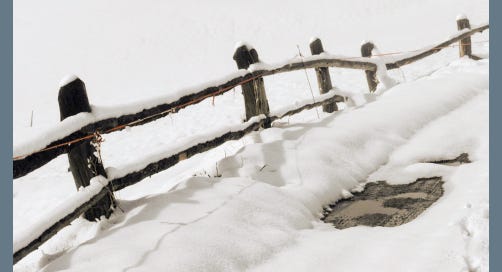



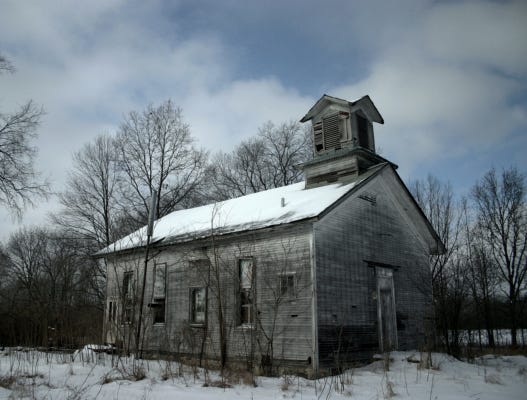
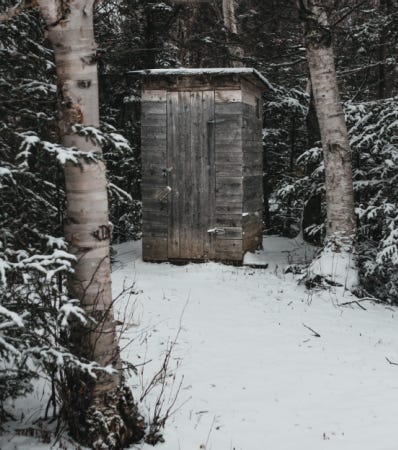
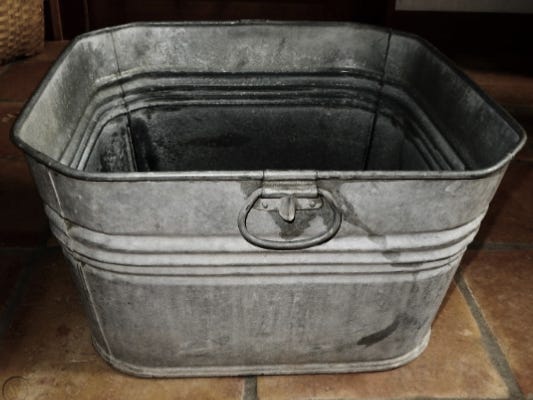
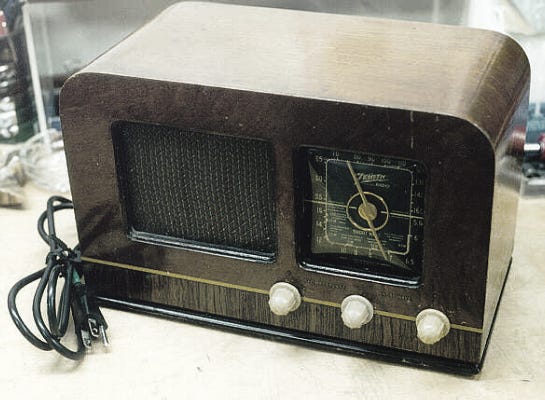

Sharron, there is no question that people in general were just plain tougher back then. I'm not talking about going to some gym and lifting weights for a few hours while you're looking at yourself in the mirror 'tough'. I'm talking farm tough. I was trying to think of the best single word to describe people back then and I think I'm going to go with Hardy. The dictionary gives the following meanings to the adjective Hardy which I think fit perfectly, let me know what you think;
*Capable of enduring fatigue, hardship, exposure, etc.; sturdy; strong
*Able to withstand extreme conditions
*Displays physical toughness vigor, and endurance
Another great Katy post! - Thanks so much for posting these, always enjoy. - Jim.
Please continue to keep your Katy memoirs going. You can share them all your life as I'm certain your memories go on and on...
I enjoy reading them so much. What we think of as hard or difficult, isn't anywhere near what had to be endured back...whenever.
Unless we have accounts, we aren't able to even begin to put ourselves in their shoes or think that we wouldn't have smartphones, GPS, and all the modern conveniences. Perhaps we, in general, are not as grateful for what we have because it is so convenient. I'm not certain that we are less hardy, but since we haven't truly experienced the "inconveniences" perhaps we have just become spoiled?
I realize that I have a different experience since currently I've chosen to have a place in Canada that is NOT connected to any utilities and has no road, and is only accessible by boat. This means that we cannot go in winter. Have DEFINITELY an outhouse. And definitely, it's a walk to get to it!! I'm learning. Slowly, but just the location teaches such adaptation and acceptance and letting go of our little peeves to learn how to live better and appreciate more each day.